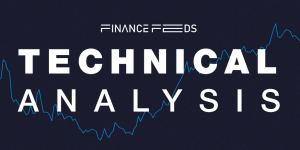Tacans at Consensus 2023: The DeFi space With Adults in the Room
FinanceFeeds had the opportunity to speak with James Davies and Marie Tatibuoet from Tacans about the Venture Studio’s newly launched DeFi product, a CLMM decentralized exchange, and their plans to soon add a CME-grade futures and options platform.

Consensus 2023 by CoinDesk, which took place on April 26-28 in Austin, Texas, once again brought together all sides of DeFi, blockchain, Web3, and the metaverse to one of the world’s longest-running crypto, blockchain, and Web3 events.
This year’s conference included world-class speakers from fintech, blockchain, and TradFi, as well as regulatory and lawmaking bodies, such as Circle’s Jeremy Allaire, Custodia Bank’s Caitlin Long, CFTC’s Christy Romero, Yuga Labs CEO Daniel Alegre, Edward Snowden, and even William Shatner.
Consensus 2023 was announced by CoinDesk as a call to action for developers, investors, founders, policymakers, brands, and others to come together and find solutions to crypto’s thorniest challenges and finally deliver on the technology’s transformative potential. The event came in the wake of the most tumultuous year in crypto history and served as an opportunity to reflect and rebuild.
Tacans is a Venture Studio focused on DeFi
On that note, Tacans Labs stands out when it comes to reinventing the DeFi space. The company, which was co-founded by FX pioneer and Saxo Bank co-founder Lars Seier Christensen, is the DeFi venture studio arm of Tacans, focused on building purposeful, innovative protocols in the decentralized finance sphere.
FinanceFeeds Editor-in-Chief Nikolai Isayev spoke with CPO James Davies and CMO Marie Tatibouet about Tacans, which follows the Venture Studio concept, also known as Startup Factory. These organizations create, launch and scale high-growth businesses, typically developing an idea into a product, and then creating a business – using their own resources and networks.
Tacans have identified DeFi as the stepping stone for the rest of crypto. “We feel like the way in which the whole of the crypto ecosystem will succeed is by a step up in quality of DeFi projects because they act as a multiplier in capital supply to everybody else’s great innovation out there”, said James Davies.
Tacans launches Veax: The DEX that offers concentrated liquidity
James Davies and Marie Tatibouet attended Consensus 2023 to announce the go-live of its latest product, Veax, a DEX built on NEAR Protocol that has since become the third largest decentralized exchange on NEAR Protocol.
“It’s version 1.0”, said Davies, about the concentrated liquidity market maker (CLMM), which is a next-generation automated market maker (AMM) designed to increase capital efficiency. The CLMM allows the exchange to offer a high level of liquidity for popular trading pairs, while the limit order liquidity provides users with greater control over the execution price of their trades. It is an hybrid approach that provides users with the best of both worlds, ensuring fast and reliable trade execution while giving them greater flexibility and control over their trades.
Tacans CPO James Davies explained that Veax and its CLMM model addresses fragmentation found in DeFi markets because of the fees at the point of installation, which forces people to create different pools and set different fees when volatility occurs. “It’s relatively complex to allow multiple fees in the same pool, but we’ve done that”, he said, adding that it is particularly useful on chains where there is less DeFi. “People aren’t going to build tools to consolidate and smart order routing across them”.
Leveraging the CLMM model on Veax is how liquidity providers can significantly improve capital efficiency and management in DeFi. “When you run through the game theory of people being able to set a market rate for fees and being able to condense those through one place, run through one single smart contract, is fee efficient, capital efficient, and comes with better results”, James Davies explained, concluding that Tacans is simply bringing TradFi’s fund management to decentralized finance, but calling it ‘liquidity management’.
CME’s clearing operation inspires plans for proper futures and options offering
The company also has plans down the line to launch a decentralized futures and options trading platform, which is James Davies’ expertise and that’s another area where Tacans is able to shine, since most DeFi projects don’t follow the TradFi’s approach to options, such as Portfolio VAR.
“We want to do Value-at-Risk (VAR) on a portfolio basis, which means as we put different contracts, we collapse those down to look at what the exposure is to the market as a whole and make sure people are collateralized against that market as a whole rather than collateralizing every single options trade. If you look at most of platforms coming out, they’re simpler and allow to collaterize individual options, but that gets very expensive if you have a big portfolio of options”, Davies explained, adding that the DeFi space must be built the right way.
“The first place we’re going to launch our model will be on Concordex, our institutional focused DEX because the investment opportunity is there, but it will benefit the whole ecosystem. The futures and options offerings we’re working on will be done like CME’s clearing operation – with default funds, waterfalls, and stress scenarios.”
EU’s MiCA framework can inspire US crypto regulation by transitive property
The MiCA framework, recently approved by the EU Council, was one of the most discussed topics at Consensus 2023. Can it be utilized as a blueprint for the United States? Tacans’ James Davies noted that the US usually leads the way, but not this time because of “lobbying interests”. However, the MiCA framework was based on the MiFID II regulation, which in its turn was based on the CFTC rules. With that in mind, “it shouldn’t make people uncomfortable” to follow MiCA in the US.
“It’s important that regulations don’t create a barrier between the two countries. If MiCA becomes established, then the industry as a whole will be served by the US having similar principles and standards, allowing portability and recognition between the two ecosystems”, he said, pointing to the importance of harmonization. “It doesn’t mean the US has to follow like for like.”
While MiCA does reasonably well on how centralized exchanges and KYC should operate, it doesn’t do a great job on DeFi”, he added. Tacans and the rest of the DeFi space will likely wait for the interpretations by the French and Germans, which will serve as the basis for the second round of MiCA. “That should set the basis for DeFI”, he continued, reminding that the space needs fundamental changes like the sharing of data for KYB and KYC on chain and being able to verify rather than requiring each party to do that. Additionally, there is need for legislation in regard to decentralized autonomous organizations (DOUs), tokenomics, and freedom for tokens to operate and look more like securities.
“Ripple’s business model has been superseded ten times over since the lawsuit”
As to the regulation-by-enforcement practice in the United States that increasingly looks like a ‘whack-a-mole”, James Davies attributed it to the ‘Chevron deference doctrine’ – when a legislative delegation to an administrative agency on a particular issue or question is not explicit but rather implicit, a court may not substitute its own interpretation of the statute for a reasonable interpretation made by the administrative agency.
This legislative malaise has been going on for several years now and is on the US Congress to draft something appropriate, but companies are still responsible for their bad investments in firms like FTX or Celsius Network. James Davies shared his recent experience in analyzing crypto companies for the purpose of investing in them. “I could not work my way through their risk models and balance sheets to the place where I felt comfortable, so I vetoed putting that capital in”.
“I don’t think balance sheets and operations are in any way too complex for relatively straight forward analysis. If they’re held to the same level as a bank balance sheet for the issuing of mortgage debt, that’s relatively straightforward and solves half of the problems”, he added.

In regard to crypto/blockchain firms dealing with regulators, while James Davies sees Coinbase’s threat to move out of the US as “fascinating” but unlikely, Ripple’s lawsuit will not provide any clarity to the crypto ecosystem: it will be settled behind closed doors, no room for jurisprudence. The company and XRP don’t seem to have a bright future ahead. “Ripple’s business model has been superseded ten times over since the lawsuit”, he said, adding that there is a case for Ripple investors to sue the federal government for the damages made by the never ending SEC v. Ripple lawsuit. “The length of time has killed the business model. That’s criminal. That’s why people take their business to other countries”.
DeFi to avoid complying with the Travel Rule?
To finish up the interview, Tacans’ Chief Product Officer addressed concerns of DeFi being able to serve as a workaround for firms and market participants who would rather avoid complying with the Travel Rule. “‘Could it’ and ‘should it’ are different questions: you can construct a business that would allow that, but I could do that on fiat”.
An example of this are the hundreds of millions of dollars that move around through online gaming companies that are set up out of Caribbean islands but are nominally owned in the UK and Europe and bring money out of China, paying back with miners in crypto or jewelry.
“If you work in payments, you get approached by these people all of the time. No different in crypto. You get approached by these people. You don’t have to deal with them. You have to go out of your way to make sure you’re not acting in the way to facilitate that”.









